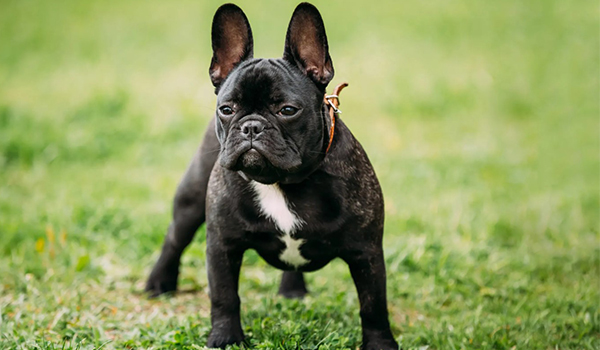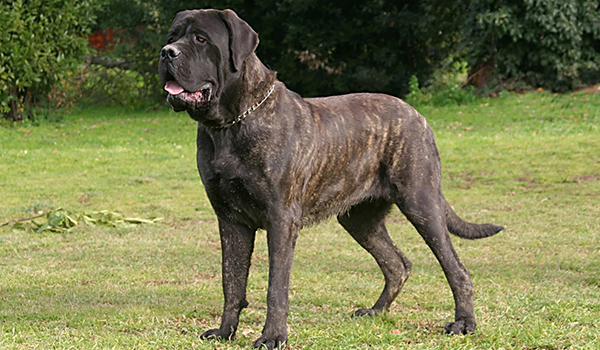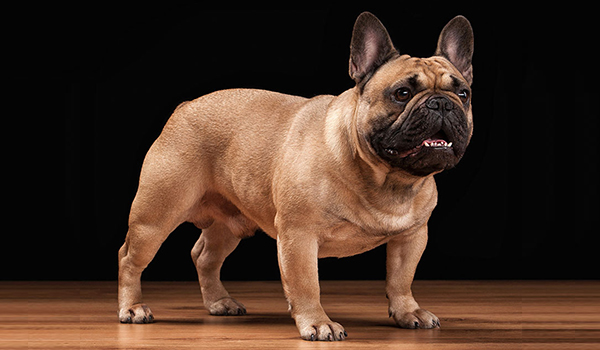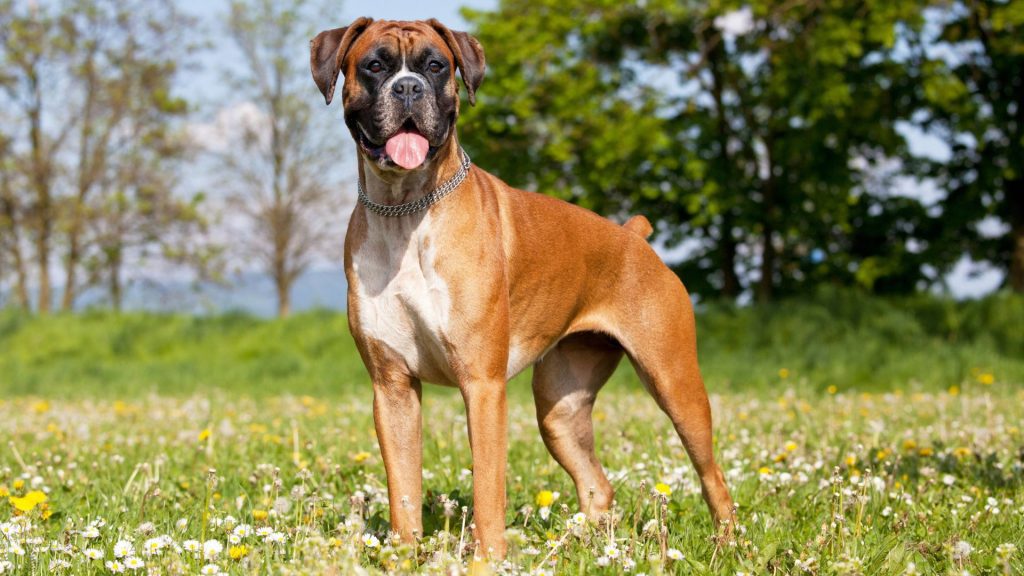
The Boxer is a breed of delightful contradictions: a powerful, athletic guardian with the heart of a clown. With their muscular build, expressive face, and boundless energy, they are the quintessential family clown and a loyal protector all in one. Known for their characteristic “wiggle” and playful spirit, Boxers combine strength and agility with a deep, loving devotion to their families.
This comprehensive guide will explore everything a future owner needs to know about the Boxer, from their working-dog origins to their specific health needs, to help you decide if this high-energy, people-loving goofball is the right fit for your home.
Breed Overview
- Group: Working
- Height: 21 – 25 inches (at the shoulder)
- Weight: 50 – 80 pounds (females are typically smaller)
- Life Span: 10 – 12 years
- Coat: Short, smooth, and tight-fitting. Colors include fawn and brindle, often with white markings (“flashy”). Approximately 20-25% of Boxers are white, but these dogs are prone to deafness and sunburn and are disqualified from the show ring.
A Brief History: From Bullenbeisser to Family Favorite
The Boxer’s ancestors were German dogs known as Bullenbeissers (“bull biters”), which were used for hunting large game like boar and bison. In the 19th century, these dogs were crossed with the powerful ancestors of the English Bulldog to create a more agile and compact dog. The result was the modern Boxer, which was initially used for controlling cattle in slaughterhouses—a job that required a strong grip and a resilient nature.
Their intelligence and loyalty soon made them valuable for police and military work. After World War II, returning American soldiers brought Boxers home, where their playful and protective nature quickly made them one of the most popular family dogs in the United States.
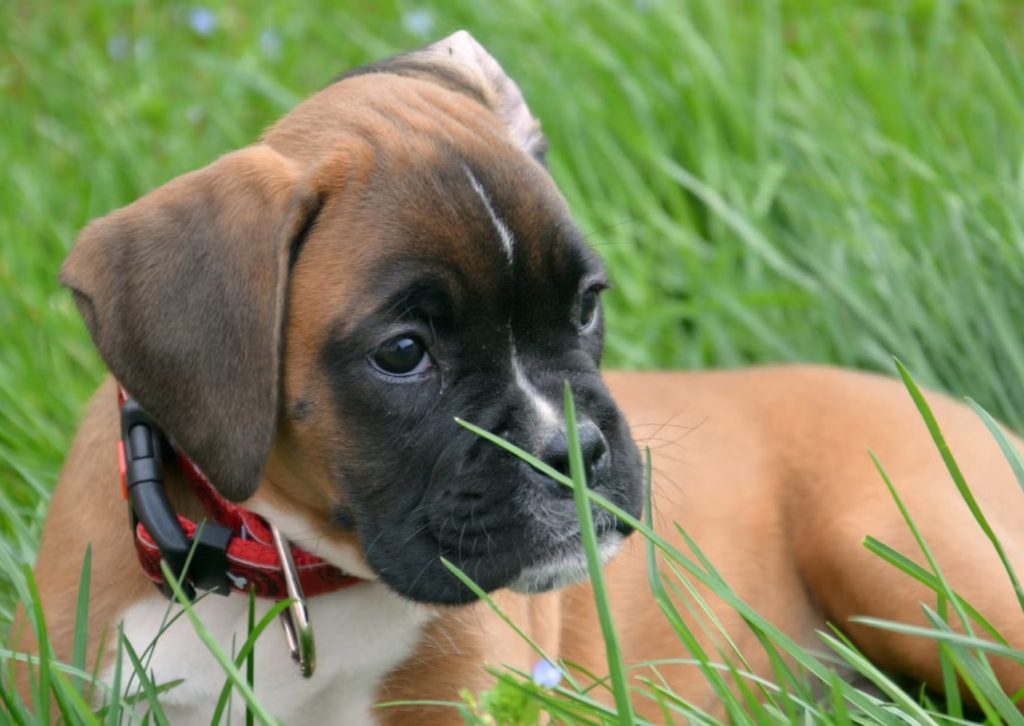
The Boxer Temperament: The Playful Protector
The Boxer’s personality is a winning combination of fun-loving energy and steadfast loyalty. They are often described as having a “Peter Pan” complex, retaining their puppy-like demeanor well into adulthood.
- Playful & Energetic: Boxers are famous for their playful, sometimes goofy, antics. They are known for a unique behavior called the “Boxer wiggle,” where they twist their entire body in excitement. They have a high energy level that lasts for several years.
- Patient & Loving with Families: They are renowned for their patience and affection with children, often becoming their most devoted protectors and playmates. Their sturdy build can withstand the enthusiastic hugs of kids.
- Loyal & Protective: They form deep bonds with their families and are naturally protective of their home and people. This makes them excellent watchdogs. They are typically reserved with strangers but not overly aggressive.
- Intelligent & Willful: They are smart and quick to learn, but they can also be stubborn. Their attention span can be short, so training needs to be engaging and fun.
- People-Oriented: They are true “velcro dogs” that crave human companionship. They do not do well when left alone for long periods and can develop separation anxiety.
Caring for Your Boxer
Exercise: A Must for a Happy Boxer
A bored or under-exercised Boxer will find their own entertainment, which often leads to destructive chewing or digging.
- Daily Requirements:At least 60 minutes of vigorous daily exercise. This should include:
- Playtime: They love a good game of fetch or tug-of-war.
- Structured Walks: Brisk walks or jogs on a leash.
- Mental Games: They enjoy activities that engage their minds, like agility or obedience training.
- Puppy Considerations: Exercise for puppies should be controlled to protect their developing joints.
Grooming: Surprisingly Low-Maintenance
- Brushing: A weekly brush with a rubber grooming mitt or soft bristle brush is all that’s needed to remove loose hair and distribute skin oils. They are moderate shedders.
- Bathing: Bathe only as needed. Their short coat is easy to keep clean.
- Wrinkle Care: The folds on their face should be wiped regularly and kept dry to prevent infection.
- Other Needs: Regular nail trimming, ear cleaning, and teeth brushing.
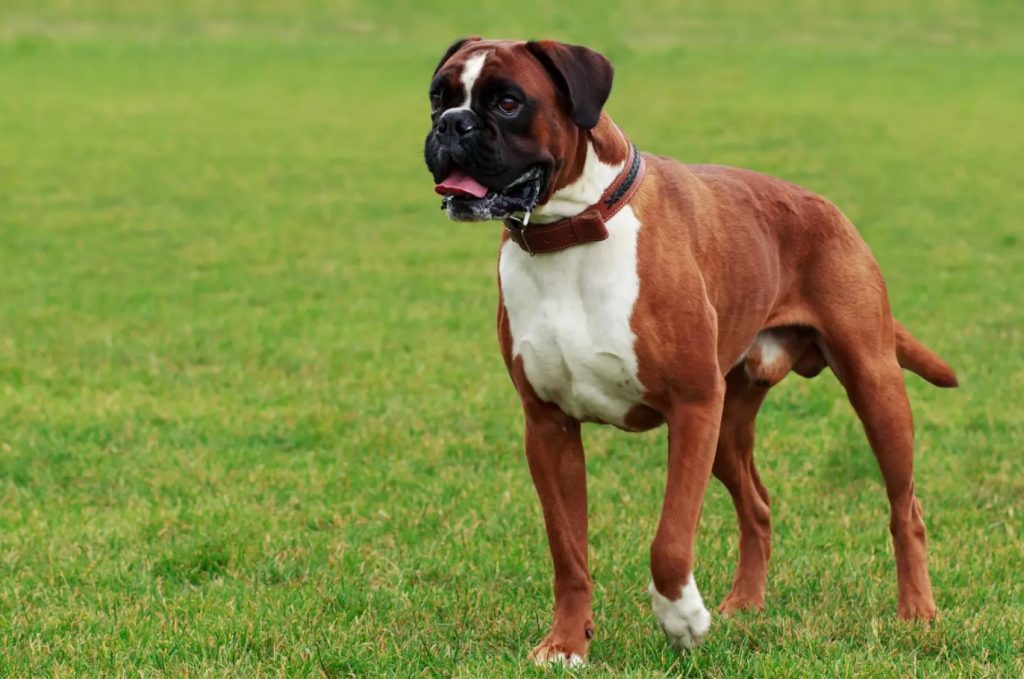
Training: Consistency and Positive Fun
Training a Boxer requires patience, consistency, and a good sense of humor.
- Start Early: Begin socialization and puppy training classes as soon as possible. Positive exposure to a wide variety of people, animals, and environments is crucial for building a well-adjusted, confident adult.
- Keep it Positive: They respond excellently to reward-based training with treats, praise, and play. They are sensitive and do not respond well to harsh methods.
- Be Patient and Consistent: Their playful nature and occasional stubbornness require a calm, consistent handler. Keep training sessions short and fun to hold their attention.
- Socialization is Key: Proper socialization helps ensure their natural protectiveness is balanced and appropriate.
Health: What to Be Aware Of
Boxers are a wonderful breed but are prone to several serious health conditions. Choosing a reputable breeder is paramount.
- Boxer Cardiomyopathy (Arrhythmogenic Right Ventricular Cardiomyopathy): This is a serious and common heart condition in the breed that can cause sudden cardiac death. Reputable breeders will have their dogs’ hearts screened regularly by a veterinary cardiologist.
- Cancer: Boxers have a higher-than-average rate of certain cancers, including mast cell tumors and brain tumors.
- Hip Dysplasia: A degenerative joint condition common in medium-to-large breeds.
- Brachycephalic Syndrome: Their short muzzle makes them prone to breathing difficulties, snoring, and overheating. It is critical to avoid exercise in hot, humid weather and provide a climate-controlled environment.
- Hypothyroidism: A manageable thyroid disorder.

Is a Boxer Right For You?
A Boxer might be your perfect match if you:
- Want a playful, energetic, and loyal family dog.
- Have an active lifestyle and can provide plenty of daily exercise.
- Appreciate a goofy, affectionate companion with a loving heart.
- Are home often and can provide plenty of companionship.
- Are prepared for potential health issues and the associated costs.
You might want to reconsider if you:
- Prefer a quiet, low-energy, or independent dog.
- Live in a hot, humid climate without air conditioning.
- Are away from home for long hours regularly.
- Are unprepared for the potential heartbreak of breed-specific health problems.
- Want a dog with a long lifespan (10-12 years is typical).
Finding Your Boxer
- Reputable Breeders: This is crucial. A responsible breeder will:
- Health Test: Provide cardiac clearances from a veterinary cardiologist, OFA hip certifications, and thyroid tests.
- Focus on Temperament: Breed for stable, sound nerves and the characteristic playful nature.
- Be Transparent: Discuss health issues in their lines openly.
- Rescue & Shelters: Boxer-specific rescues are very active. Many dogs end up there due to owners being unprepared for their energy or health needs. Adopting an adult can be a wonderful way to offer a second chance.
Understanding the Cost: The initial purchase price from a reputable breeder in the U.S. is typically $1,200 to $2,500+. The lifetime cost of ownership must include budgeting for potential veterinary care for heart conditions, cancer, and other breed-specific issues. Pet insurance is highly recommended.
Bringing a Boxer into your life means committing to a loyal, energetic, and hilarious friend. In return for your care and companionship, you will gain a devoted family member whose playful spirit and unwavering love will fill your home with laughter and joy for years to come.

